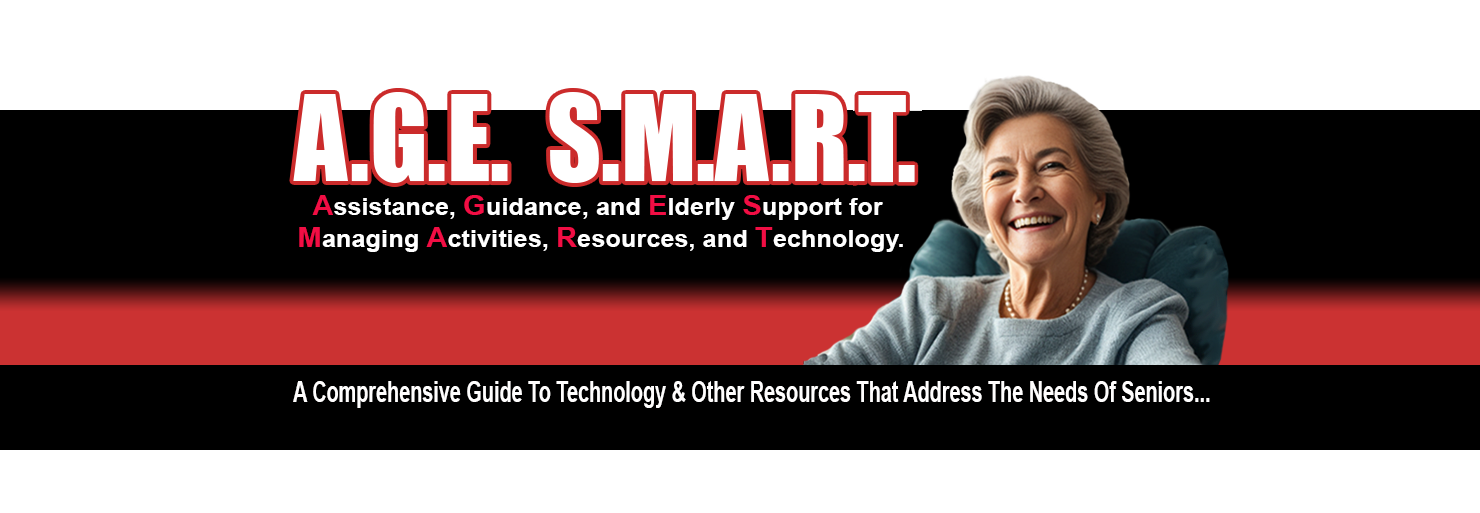- Cognitive Stimulation
- Communication
- Daily Living Assistance
- EZ Relaxing Coloring Digitally
- Fall Detection
- Financial Management
- Gratitude Journal
- Grocery Delivery
- Health Monitoring
- Home Maintenance
- Home Monitoring
- Medication Management
- Memory Support
- Mental Health Support
- My Appointments
- Personal Assistants
- Remote Caregiving
- Safety
- Social Connection
- Telecommunications
- Telehealth
- Today's To Do List
- Transportation
- Transportation Monitoring
- Word Search Puzzles

Mental Health Support:
- Technology solution: Mental health apps, like Talkspace or Headspace, provide seniors with access to therapy, meditation, or self-care resources. Seeking mental health support through apps can promote emotional well-being and stress management for older adults.
Talkspace: https://www.talkspace.com/
Headspace: https://www.headspace.com/
In recent years, mental health apps have gained popularity as convenient and accessible tools for individuals seeking emotional support and stress management. These apps, such as Talkspace and Headspace, provide a platform for virtual therapy sessions, guided meditation, and self-care resources that can be accessed anytime, anywhere. While these apps are beneficial for people of all ages, they have also proven to be particularly impactful for seniors who may face unique challenges when it comes to seeking mental health support.
One of the main benefits mental health apps for seniors is the ease of access to therapy and emotional support. Many older adults may face barriers to traditional therapy, such as mobility issues, transportation challenges, or stigma around mental health.
By using an app like Talkspace, seniors can connect with licensed therapists through text, audio, or video messages from the comfort of their own homes. This accessibility can help seniors overcome obstacles to seeking support and encourage them to prioritize their mental well-being.
 Additionally, mental health apps like Headspace offer guided meditation and mindfulness practices that can help seniors manage stress, anxiety, and other emotional challenges. These tools can be particularly beneficial for older adults who may be experiencing loneliness, grief, or other age-related stressors. By incorporating meditation into their daily routine, seniors can cultivate a sense of calm, clarity, and resilience in the face of life's challenges.
Additionally, mental health apps like Headspace offer guided meditation and mindfulness practices that can help seniors manage stress, anxiety, and other emotional challenges. These tools can be particularly beneficial for older adults who may be experiencing loneliness, grief, or other age-related stressors. By incorporating meditation into their daily routine, seniors can cultivate a sense of calm, clarity, and resilience in the face of life's challenges.
Experts in the field of mental health have also recognized the potential of technology solutions like mental health apps for seniors. Dr. Sarah Johnson, a psychologist specializing in geriatric mental health, notes that these apps can provide valuable support for older adults experiencing depression, anxiety, or cognitive decline. She emphasizes the importance of personalized care and ongoing monitoring but acknowledges that apps can be a helpful supplement to traditional therapy for seniors who may not have access to in-person services.
Real-life success stories of seniors who have found support and relief through mental health apps further underscore the impact of these tools on emotional well-being. For example, Margaret, a 70-year-old retiree, shares how using Talkspace has helped her navigate feelings of loneliness and isolation since her husband passed away. Through regular check-ins with her therapist and access to resources on grief and loss, Margaret has found comfort and connection in a time of need.
Despite the benefits of mental health apps for seniors, it is important to recognize the limitations of relying solely on technology for emotional support. While these apps can provide valuable tools and resources, they should be used as part of a holistic approach to mental health and well-being. This may include a combination of virtual therapy, self-care practices, social connections, and in-person support from healthcare providers.
Incorporating mental health apps into a comprehensive wellness plan for seniors can help promote emotional resilience, foster connection, and enhance overall quality of life. By combining technology solutions with personalized care and ongoing monitoring, older adults can receive the support they need to navigate life's challenges with grace and resilience. As we continue to explore the potential of mental health apps for seniors, let us prioritize compassion, understanding, and collaboration in supporting emotional well-being for all.